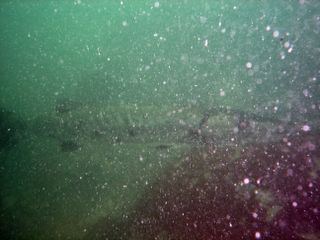In my experience, the above saying is absolutely true. The universe and our planet have been through many such tumultuous changes in their 4.5 billions of years or so of existence, as evidenced by the geological record. Unfortunately, this saying and the huge variations found in the geologic record, become the skirt that people, institutions and governments (like Mr. Bush’s) hide behind, vehemently denying the indelible thumbprint of humans on today’s very rapidly changing climate.
Governments from all over the world came together from November 28 to December 9 in Montreal for the United Nations Climate Change Conference. They met primarily to hash out policies after the existing Kyoto Protocol expires in 2012. As expected, the number one CO2 emitter, the great U.S. of A., refused to enter into ANY talks about curbing their greenhouse gas emissions, persistently citing that one, this will harm their economy, two, other big developing countries like China and India are not included but should be, and three, there are other measures that America is taking. I’m sorry but these reasons are infuriating to me (that’s really an understatement, but I’m trying to keep this PG). Their first reason speaks of lack of vision and will to reform the main industries driving these emissions: oil and cars. Their second reason speaks of their lack of any sense of responsibility for their enormous impact on global climate change. And finally their third reason is just total b— uh, farse since Mr. Bush Jr. has pulled so much money out of research and into the war (this encompasses their supposed research into energy alternatives), and without major economic incentives to shift from fossil fuels to alternative sources, nothing will happen in the bigger-more powerful-is-better consumer society that America is.

So what does this all have to do with coral reefs? Of course, in the line-up of important things that climate change will affect, coral reefs are the least of people’s worries. Drastically shifting weather and climate will affect everyone’s lives and livelihoods and is probably at the top of concerns. Drowning of low-lying islands and coasts (such as parts of the Philippines) is pretty significant. However, coral reefs are a bit like the canaries in the coal mine. Ecosystems such as reefs are important economically as well as aesthetically, however, changes occurring in the system tell us that something is up. And in the past decades, we’ve seen increased and more intense disease and bleaching events. Bleaching is when corals lose their symbiotic algae and turn white because of extreme temperatures (mainly high temperatures) and/or UV. They can recover or die depending on the intensity of stressors. The death of the corals has led to the increase in abundance of other reef organisms such as macroalgae and sponges. Unfortunately, if the current projections on the state of the climate hold true, the chemistry of the ocean will also be affected and consequently the ability of calcified organisms like corals to produce their skeleton and grow. Some research suggests corals would essentially dissolve if CO2 emissions continue as they are and the ocean acidifies. Basically, some coral reef scientists project that corals will not be able to grow as fast or at all, much less build the reef to keep up with rising sea levels due to melting of the polar ice caps as the globe warms. This means no reefs as we know them today or no reefs at all.










